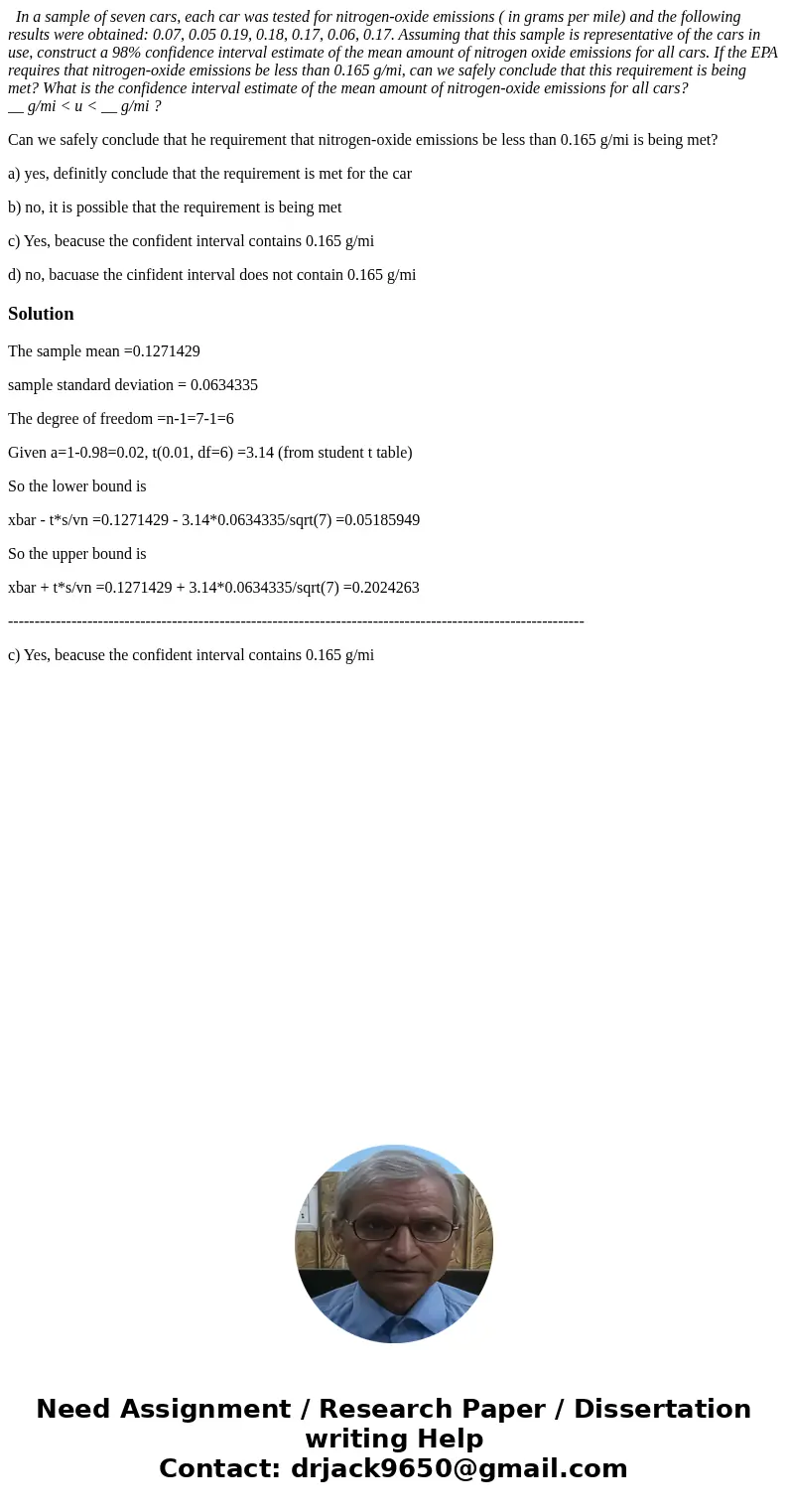In a sample of seven cars each car was tested for nitrogenox
In a sample of seven cars, each car was tested for nitrogen-oxide emissions ( in grams per mile) and the following results were obtained: 0.07, 0.05 0.19, 0.18, 0.17, 0.06, 0.17. Assuming that this sample is representative of the cars in use, construct a 98% confidence interval estimate of the mean amount of nitrogen oxide emissions for all cars. If the EPA requires that nitrogen-oxide emissions be less than 0.165 g/mi, can we safely conclude that this requirement is being met? What is the confidence interval estimate of the mean amount of nitrogen-oxide emissions for all cars?
__ g/mi < u < __ g/mi ?
Can we safely conclude that he requirement that nitrogen-oxide emissions be less than 0.165 g/mi is being met?
a) yes, definitly conclude that the requirement is met for the car
b) no, it is possible that the requirement is being met
c) Yes, beacuse the confident interval contains 0.165 g/mi
d) no, bacuase the cinfident interval does not contain 0.165 g/mi
Solution
The sample mean =0.1271429
sample standard deviation = 0.0634335
The degree of freedom =n-1=7-1=6
Given a=1-0.98=0.02, t(0.01, df=6) =3.14 (from student t table)
So the lower bound is
xbar - t*s/vn =0.1271429 - 3.14*0.0634335/sqrt(7) =0.05185949
So the upper bound is
xbar + t*s/vn =0.1271429 + 3.14*0.0634335/sqrt(7) =0.2024263
-------------------------------------------------------------------------------------------------------------
c) Yes, beacuse the confident interval contains 0.165 g/mi

 Homework Sourse
Homework Sourse